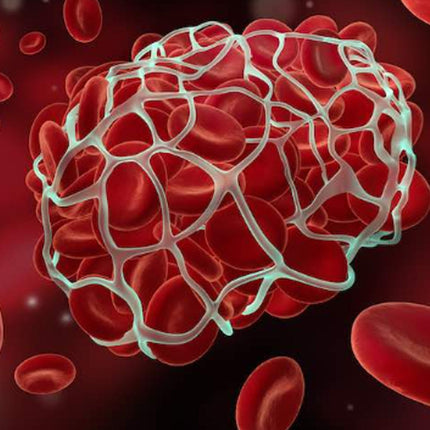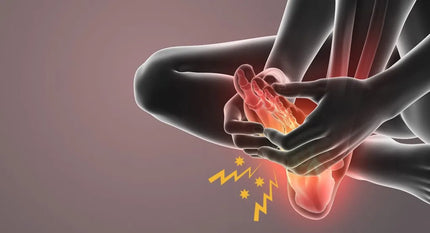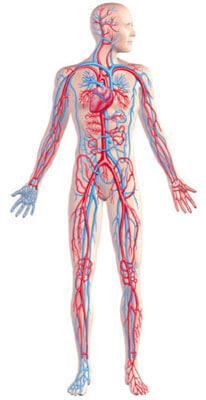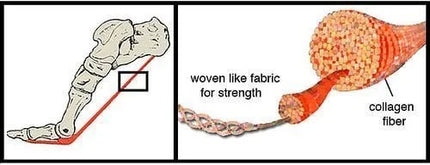Tax included and shipping calculated at checkout
One of the most important minerals (if not the most important) for brain health is magnesium. It is a vital macromineral that the body uses in over 600 enzymatic reactions from the making of proteins (including DNA, hormones, collagen and neurotransmitters), as well as immune regulation, control of calcium channels, electrolyte balance and mitochondrial metabolism. It is integral in the operation of the electrical nervous system, and therefore brain function.
Neuroinflammation, degenerative disease and cognitive decline
It is interesting to note that as the global population ages, neurodegenerative diseases are worsening. These disorders, including dementia (along with vascular dementia), amyotrophic lateral sclerosis (ALS), Alzheimer’s disease, Parkinson’s disease, and Huntington’s disease, result in cognitive decline, severely impacting the quality of life. It has become so much of a concern that researchers expect Alzheimer’s disease to double every 20 years. Parkinson’s disease is the second most common neurodegenerative disorder and affects 2-3% of the population over 65 years of age.
Magnesium plays an essential role in nerve transmission and neuromuscular conduction. It also functions in a protective role against excessive excitation that can lead to neuronal cell death (excitotoxicity).
One of the main neurological functions of magnesium is due to its interaction with and regulation of the N-methyl-d-aspartate (NMDA) receptor, which receives glutamate, the brain's primary excitatory neurotransmitter. This neurotransmitter plays an integral role in memory formation, but when uncontrolled and in overdrive due to chronic inflammation, it produces too much Reactive Oxygen Species (ROS), causing oxidation and excitotoxicity. Low magnesium is linked to activation of pro-inflammatory cytokines and microglia. Microglia are specialized immune cells, responding to injury and pathogens of the central nervous system (CNS). Some people have described this state as feeling like their brain is ‘on fire’.
Low magnesium in the cerebral spinal fluid is also implicated in triggering epilepsy, as magnesium plays a vital regulatory role, via the extracellular spaces and calcium channels, to maintain electrolyte homeostasis and balance.

Magnesium serves as a blockade to the calcium channel in the NMDA receptor so that glutamate can’t push too much calcium into cell membrane channels for the excitatory (stimulatory) phase. Insufficient magnesium can also trigger an increase in Substance P, a neuropeptide that propagates inflammatory pain, increasing pain hypersensitivity with reduction in tolerance.
“Abnormal glutamatergic neurotransmission has been implicated in many neurological and psychiatric disorders including: migraine, chronic pain, epilepsy, Alzheimer’s, Parkinson’s, and stroke, in addition to depression and anxiety, which are commonly comorbid with these neurological disorders.” 1
Chronic neuroinflammation leads to cognitive decline. Diseases like Alzheimer’s and Parkinson’s are characterised by the accumulation of disease-specific proteins forming a plaque of amyloid-beta and alpha-synuclein. Pro-inflammatory cytokines, including IL-1, IL-6, and TNF-α, are a pathological feature of this disease progression. Interestingly, magnesium supplementation has been shown to reduce the levels of these proinflammatory cytokines and increase the levels of anti-inflammatory mediators in the hippocampus of the brain.
The oxidative stress caused by magnesium deficiency weakens antioxidant defence mechanisms of the immune system, leading to defective lipids, proteins and DNA. This has far-reaching implications, as effects are felt at both systemic and cellular levels, including chronic inflammation, endothelial dysfunction, mitochondrial dysfunction and excessive fatty acid production. 2 This constellation of symptoms is a part of metabolic syndrome, insulin resistance, and eventually diabetes mellitus and cardiovascular disease. Some researchers are even calling Alzheimer’s ‘Diabetes type 3’. (Study link).
Magnesium is neuroprotective, but better when you start early!
Researchers are finding that an increase in intracellular magnesium concentration inhibited cellular ROS production, maintained ATP (adenosine triphosphate) generation, and preserved cell viability, thereby protecting neurons. Magnesium is essential in the mitochondrial production of effective ATP molecules (that work like batteries) for electrical energy. Besides supporting myelin formation to protect nerves, “intracellular magnesium also enhanced oligodendrocytes’ tolerance against cellular stress, increasing resistance to a hypoxic-ischemic injury.”2
Magnesium is integral to immune system function by strengthening efficacy of B and T cells, as well as production of vitamin D3. Magnesium is also essential for support of our antioxidant enzymes, including glutathione (GSH) and superoxide dismutase (SOD), which help to neutralise ROS and calm oxidative stress and inflammation.
By regulating calcium channels and NMDA receptors, magnesium can inhibit excitotoxicity and overstimulation by glutamate, thereby reducing oxidative stress. Magnesium also dampens NF-κB activation and the resultant proinflammatory gene expression, thereby reducing the overall inflammatory response within the brain.
It was found in a 2023 study that; “On average, higher baseline dietary magnesium intake was associated with larger brain in both men and women.”3 These findings showed that women tended to suffer more from magnesium deficiency symptoms after menopause due to the protective effects of natural estrogen diminishing after menopause. A higher dietary magnesium intake was found to correlate with better cognitive capacity and cardiovascular health, with better smooth muscle tone and vascular relaxation effects in people over 60. Magnesium also increases neurogenesis, helping to grow new brain cells after injury recovery, by up-regulating production of neuronal stem cells.
Magnesium intake may contribute to neuroprotection earlier in the ageing process, and preventative effects are likely to begin in the 40’s or even earlier. In other words, the earlier you have been on a magnesium-rich diet, the better your longevity potential with maintenance of functional cognitive capacity. Magnesium insufficiency with neurodegeneration can start early, despite magnesium levels in blood tests showing as in the normal range. The deterioration can evolve over decades before being detected and showing up later in life as dementia.
Magnesium deficiency symptoms (& hypomagnesemia) include:
- Cramps, twitches, muscle spasms and restless legs
- Headaches or brain fog
- Chronic fatigue, chronic pain or sleep problems
- Dehydration and dry skin conditions
- Heart arrhythmia
- Gastrointestinal problems such as celiac disease and inflammatory bowel disease
- Chronic pancreatitis
- Kidney dysfunction
- Excessive vomiting
- Excessive anxiety, depression and hypersensitive stress responses
- Hypercalcemia (excessive calcium)
- Osteoporosis
- Metabolic syndrome, diabetes, and cardiovascular disease
Causes of magnesium deficiency
- Low magnesium levels in soils and foods
- Traumas and stresses
- Excessive vomiting and viral infections
- Junk processed food diet and excessive sugars
- Excessive stress of any kind (physical, psychological, sleep loss etc)
- Use of diuretic drugs and proton pump inhibitors, as well as some antibiotics
- Excessive alcohol, smoking or illicit drugs
Strategies to replenish magnesium reserves – naturally ‘tablet-free’
Note that the best magnesium studies showing optimal health benefits have used dietary magnesium, as naturally occurring magnesium salts out-perform tablet supplements.
How much do I need? Recommended daily magnesium reference ranges have been established of 350-400g, however with modern stressful lifestyles and exposure to elements that can block magnesium or cause excessive excretion, people in high-end need categories may require 1,000mg or more of magnesium daily. High end needs are best catered for with transdermal magnesium, where no digestion is required. If treating pain conditions, heat helps magnesium penetrate to deeper levels faster, such as with magnesium bathing.
- Eat fresh organic magnesium-rich foods, including meats and cooked vegetables, seeds and nuts (but make sure to soak, ferment or cook them in order to remove plant ‘antinutrients’ like oxalates and lectins).
- Drink filtered water with added magnesium chloride salt.
- Avoid chemicals like fluorides, toxic metals and other synthetic chemical additives.
- Practice daily relaxation exercises such as deep breathing and meditation.
-
Swim in the ocean, have magnesium baths or footsoaks, and/or use magnesium skin and muscle care products daily,
like Elektra Magnesium®
By Sandy Sanderson 2025 © www.elektramagnesium.com.au
REFERENCES
(1) Kirkland, A. E.; Sarlo, G. L.; Holton, K. F. The Role of Magnesium in Neurological Disorders. Nutrients 2018, 10 (6), 730. https://doi.org/10.3390/nu10060730.
(2) Patel, V.; Akimbekov, N. S.; Grant, W. B.; Dean, C.; Fang, X.; Razzaque, M. S. Neuroprotective Effects of Magnesium: Implications for Neuroinflammation and Cognitive Decline. Front Endocrinol (Lausanne) 2024, 15, 1406455. https://doi.org/10.3389/fendo.2024.1406455.
(3) Alateeq, K.; Walsh, E. I.; Cherbuin, N. Dietary Magnesium Intake Is Related to Larger Brain Volumes and Lower White Matter Lesions with Notable Sex Differences. Eur J Nutr 2023, 62 (5), 2039–2051. https://doi.org/10.1007/s00394-023-03123-x.


















































